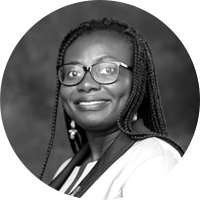

Carbon Brief is a UK-based website covering the latest developments in climate science, climate policy and energy policy.
We specialise in clear, data-driven articles and graphics to help improve the understanding of climate change, both in terms of the science and the policy response.
We publish a wide range of content, including explainers, interviews, analysis and factchecks, as well as a range of popular email newsletters.

| 2024 | Carbon Brief won “website of the year (specialist)” at Press Gazette’s Future of Media Awards. |
| 2024 | Carbon Brief’s Inside Habitable interactive feature was shortlisted for the “digital storytelling (specialist/regional)” category at Press Gazette’s Future of Media Awards. |
| 2024 | Ayesha Tandon won the Royal Meteorological Society‘s Emerging Communicator Award. |
| 2023 | Carbon Brief was shortlisted for the “specialist journalism website” category at Press Gazette’s “Future of Media Awards“. |
| 2023 | Ayesha Tandon was shortlisted for the Association of British Science Writers’ award for “newcomer of the year“. |
| 2022 | Simon Evans won the “energy and environment” category at the Press Gazette’s British Journalism Awards. |
| 2022 | Carbon Brief won Covering Climate Now’s “writing – newsletters” award for its China Briefing. |
| 2022 | Carbon Brief won the Association for Renewable Energy and Clean Technology’s (REA) “communications” award in the BritREAwards. |
| 2020 | Leo Hickman was named “editor of the year” by the Association of British Science Writers. |
| 2020 | Carbon Brief won the Association of British Science Writers’ award for “innovation of the year” for its interactive feature on the UK’s electricity supply. |
| 2020 | Carbon Brief was “highly commended” by the Royal Statistical Society for its data visualisation. |
| 2019 | Carbon Brief won the Association of British Science Writers’ award for “innovation of the year” for its interactive feature on the impacts of climate change. |
| 2019 | Carbon Brief was shortlisted in the “maps, places and spaces” category of the “Information is Beautiful” awards. |
| 2018 | Carbon Brief was “highly commended” by the Royal Statistical Society for its investigative journalism. |
| 2018 | Carbon Brief won the “energy and commodities” category of the Press Gazette’s British Journalism Awards for Specialist Media. We were also a finalist in the “science and health” category. |
| 2017 | Carbon Brief won the “best specialist site for journalism” category at The Drum Online Media Awards. |
“The work Carbon Brief produces is incisive, informative and influential – thank you!”
– Alok Sharma, President, COP26
“I use Carbon Brief writing and graphics in my teaching. I refer others to Carbon Brief as a source of concise and acute analysis.”
– Rachel Kyte, Dean emirata at the Fletcher School at Tufts University
“Carbon Brief’s newsletters are an incredible way to stay informed on the climate crisis.”
– Adam McKay, Director, ‘Don’t Look Up’

Land, food systems and nature reporter @aruna_sekhar
Aruna holds an MSc in environmental change and management from the University of Oxford. She previously worked as a freelance journalist for a variety of publications, including the New York Times, Guardian, Scroll and Caravan.legen

Multimedia producer
Kerry holds an MA in communication design from Falmouth University where she focused on ethical and environmental-based projects. She has previous experience of working in traditional graphic design, interactive displays and exhibition curation with private and non-profit sectors.

Associate editor @daisydunnesci
Daisy holds a BSc in biology from the University of Bristol and a science journalism MA from City, University of London. She was Carbon Brief’s science writer from 2017 to 2020 and the Independent’s climate correspondent from November 2020 to 2021. Daisy returned to Carbon Brief in January 2022 as our special correspondent and became associate editor, with responsibility for editing the DeBriefed newsletter, in August 2024.

Food, land and nature reporter
@orladwyer_
Orla has a BA in journalism from Dublin City University. She previously reported and wrote a climate newsletter for Irish news website The Journal. She has also worked at Virgin Media Television, Dublin People and the Irish Farmers Journal.

Digital content executive @solomonelusoji
Solomon holds an MA in journalism and communication from the Renmin University of China and a BA in mass communication from the University of Benin. He has worked as a freelance journalist for publications such as the BBC and China Dialogue. He was previously the social media editor at Channels Television in Lagos.

Deputy editor and senior policy editor @DrSimEvans
Simon covers climate and energy policy. He holds a PhD in biochemistry from the University of Bristol and previously studied chemistry at the University of Oxford. He worked for environment journal The ENDS Report for six years, covering topics including climate science and air pollution.

Policy correspondent @Josh_Gabbatiss
Josh holds a BSc in zoology from the University of Bristol. He previously worked as science correspondent at The Independent and prior to that was a freelance journalist for a variety of scientific publications including New Scientist and BBC Earth.

Multimedia producer @joejgoodman
Joe holds an MA in interactive journalism from City, University of London and a BA in archaeology from the University of Cambridge. He has previously reported for the Guardian, Vice, Dazed, Land Magazine and the Ecologist.

Office manager
Rae-Anne has more than five years experience working as a team coordinator and personal assistant at a range of workplaces, including the NHS and renewable energy sector.

Senior digital content executive
@emmahancoxx
Emma holds an MA in international relations and a BA in English language and literature from the University of Nottingham. She has previous experience working in digital communications in both the private and non-profit sectors.

Climate science contributor
@hausfath
Zeke has masters degrees in environmental science from Yale University and Vrije Universiteit Amsterdam, and a PhD in climate science from the University of California, Berkeley. He has spent the past 10 years working as a data scientist and entrepreneur in the cleantech sector.

Director and editor @LeoHickman
Leo previously worked for 16 years as a journalist, editor and author at the Guardian newspaper. Before joining Carbon Brief, he was WWF-UK’s chief advisor on climate change. In 2013, he was awarded an honorary doctorate by the University of Exeter in recognition of his journalism. His books include A Life Stripped Bare, The Final Call and Will Jellyfish Rule the World?

Team coordinator
Ellie-Mai previously worked in facilities management within the social care sector, attaining four years of administrative experience and distinctions in level 3 business administration.

Section editor for science
@cecilia_keating
Cecilia holds a BA in English literature from the University of Bristol and a graduate diploma in journalism from Concordia University in Montreal. She was previously features editor at BusinessGreen. Prior to that, she reported on clean energy and environment for publications in the UK and Canada, including National Observer, Solar Media and Ricochet Media.

Section editor for policy @MollyLempriere
Molly holds a BA in English literature from Brunel University. She was previously UK editor at Solar Media, where she covered the energy transition, managing Current± and Solar Power Portal. Prior to this, she was senior editor for the energy sector at Verdict Media.

Senior science editor @rtmcswee
Robert holds an MEng in mechanical engineering from the University of Warwick and an MSc in climate change from the University of East Anglia. He previously spent eight years working on climate change projects at the consultancy firm Atkins.

China analyst
@_AN_Patel
Anika holds a master of laws in international relations from Peking University in China and a BA in Chinese from SOAS (School of Oriental and African Studies), University of London. She has worked for five years as a policy analyst focused on Chinese domestic and foreign policy, most recently as an associate at a US consulting firm.

Interactive developer
With a background in software engineering and web development, Tom has more than 20 years experience working to present complex data in a clear and accessible manner. He has designed and produced award-winning data driven graphics for BBC News, Financial Times, Condé Nast, Natural History Museum and Economist Group, among others.

Managing editor
Roz was previously our science editor and deputy editor from 2012-2017, with a stint at the Intergovernmental Panel on Climate Change (IPCC) and Climate Outreach in between. As well as editing support, she manages our in-house practices, policies and team well-being. She has a PhD in oceanography from the University of Southampton.

Senior multimedia producer
@tomoprater
Tom completed a MSc in digital journalism at Goldsmiths, University of London in 2017. He holds a BA (Hons) in art and visual culture from University of the West of England, and has previous experience working for King’s College London.

Food, land and nature reporter
@YanineQuiroz
Yanine has a BA in communication sciences from National Autonomous University of Mexico. She worked as a freelance journalist for Mexican and international media outlets such as Mongabay Latam and China Dialogue. She is also member of the Mexican Network of Science Journalists.

Section editor for China @Wanyuan_Song
Wanyuan holds a MA in East Asia politics (Japanese studies) from SOAS (School of Oriental and African Studies), University of London, and BA in media and sociology from University of Leicester. She worked as China specialist for BBC News, covering China and East Asia for the past five years.

Science journalist @AyeshaTandon
Ayesha holds an MSci in natural sciences, specialising in climate science, from the University of Exeter. She previously worked at the UK Met Office as a climate science communicator.

Digital content executive
Alice holds a MA in environment, development and policy from the University of Sussex and a BA in geography from the University of Brighton. She has previous experience supporting communications for international NGOs and UNICEF.

Section editor for food, land and nature
@GAViglione
Giuliana has a PhD in environmental science, specialising in oceanography, from the California Institute of Technology. She previously worked at Nature and Chemical & Engineering News and freelanced for a variety of publications.

Verner holds a PhD in engineering from the University of Cambridge and a MEng in mechanical engineering from the University of Bristol. He previously worked for two years as a policy analyst for environmental think tank Green Alliance, primarily focusing on accelerating industrial decarbonisation and assessing government progress against net zero.
Our editorial team is supported by an international group of academics, each specialising in various areas of climate science, biodiversity, energy and policy. As contributing editors, they help to keep us up-to-date with the latest scientific and policy developments, as well as advising us, when required, on matters of scientific accuracy. Our contributing editors are not paid by Carbon Brief and do not endorse our content.

Guivarch is a professor at Ecole des Ponts ParisTech in France and a researcher at the International Research Center on Environment and Development (CIRED). Her research focuses on the economic impacts of climate change and pathways to reduce greenhouse gas emissions. She is a member of the French High Council for Climate and was a lead author of the IPCC AR6 report on mitigating climate change.

Jotzo is a professor of environmental economics at the Australian National University’s Crawford School of Public Policy. His research focuses on decarbonisation strategies and energy transition, as well as climate change economics and policy. He was a lead author of the IPCC’s AR5 and AR6 reports on mitigating climate change. He has advised national and state governments, organisations and businesses.

Labe is a research physical scientist at the US National Oceanic and Atmospheric Administration’s (NOAA) Geophysical Fluid Dynamics Laboratory. His research explores the intersection of internal climate variability, extreme events, climate projections, climate prediction and artificial intelligence.

Lapola is a research scientist at the University of Campinas in Brazil, where he coordinates the Earth System Science Laboratory. His research focuses on global change ecology, land-use change, ecosystem services, the impacts of climate change on biodiversity, Earth system modelling and sustainability science. He coordinates the Amazon-FACE experiment examining the impacts of elevated atmospheric CO2 on the Amazon rainforest. He was a contributing author of the IPCC AR6 report and lead author of the first Science Panel for the Amazon assessment report.

Otto is a senior lecturer in climate science at Imperial College London’s Grantham Institute. She previously worked for 10 years at the University of Oxford. Her research focuses on extreme weather events and understanding whether and to what extent these are made more likely or intense due to climate change. She is co-founder and leader of the World Weather Attribution initiative and was a lead author in the IPCC AR6 WG1 and synthesis report. In 2021 she made TIME’s list of the top 100 influential people in the world.

Schipper is a professor of development geography at the University of Bonn in Germany, where she runs the adaptation research collective Adaptation Hive. Her research focuses on the links between adaptation and development, including how to avoid maladaptation and ensure equity in adaptation. She is co-editor-in-chief of the journal Climate and Development and was a coordinating lead author of the IPCC AR6 report on climate impacts and adaptation.

Singh is a senior researcher at the School of Environment and Sustainability at the Indian Institute for Human Settlements in Bangalore. Her research focuses on the intersection of climate change adaptation and development, including differential vulnerability to climate risks, how and why people choose to adapt or not and the role of migration in building resilience and wellbeing. She was a lead author of the IPCC AR6 report on climate impacts and adaptation and a contributing author on the IPCC special report on 1.5C.

Williams is a research scientist at the Science and Technology Policy Research Institute of the Council for Scientific and Industrial Research in Ghana. Her research focuses on feasibility and effectiveness of climate adaptation options across different regions in Africa. She was a contributing author of the IPCC AR6 report on climate impacts and adaptation and a contributing author of the 2022-2032 African Union’s climate change and resilient development strategy and action plans.
Carbon Brief is grateful for the support of its previous contributing editors: Prof Richard Allan; Prof Mark Brandon; Prof Piers Forster; Prof Gabriele Hegerl; Prof Simon Lewis; Prof Tim Osborn; Prof Camille Parmesan; and Prof Peter Stott.
Carbon Brief offers a paid three-week internship every summer for students and recent graduates based in the UK. The application process for this internship is usually advertised via our website, social-media channels and newsletters from April to May each year. We are currently unable to take on interns and work-experience candidates on an ad-hoc basis.
We are grateful for the support of the European Climate Foundation, which provides our funding. In the spirit of transparency, we voluntarily declare that this funding totalled £1,176,376 for the financial year of 2022. We also sincerely thank our readers for their continuing support.